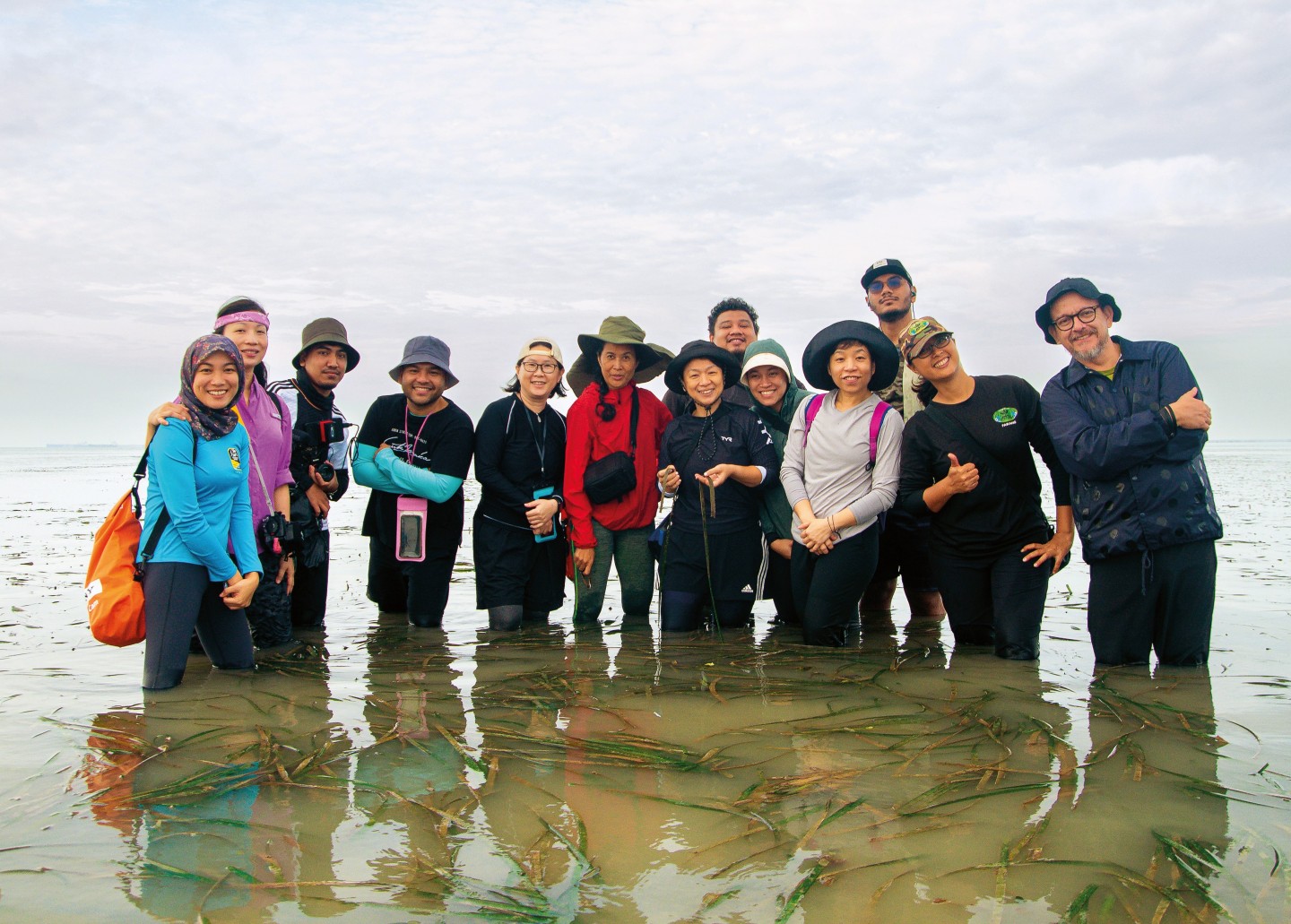
Getting the rhythm for Seruan Setu: Ooi (second from left), Datuk Zahim Albakri (right) and the RiB team at a seagrass meadow (All photos: Rhythm in Bronze)
Musicians digging their toes into mud to find inspiration for a concert? That was what happened at the immersive lab that Rhythm in Bronze (RiB) artistic and music director Jillian Ooi Lean Sim organised to introduce her group to seagrass and find out why it is important.
Lab participants walked out to a seagrass meadow and met villagers in Tanjung Kupang in the Johor Strait. There, the local community has been taught by marine scientists, among them Ooi, to map the growth of these underwater flowering plants and quantify their health. The visitors spoke to fishermen bringing in their catch and observed how fishing nets are made.
The day ended with a spread of seafood, which drove home the point that when the villagers lose their fishing grounds, they struggle to survive. Replanting is a problem because fussy seagrass thrives in clean water and takes 25 years to fully develop.
Drawing from these personal encounters, the composers began to write the music for Seruan Setu: Secret Gardens of the Sea, which RiB will present from Aug 24 to 27 at the Kuala Lumpur Performing Arts Centre. Datuk Zahim Albakri leads the Malay contemporary gamelan ensemble, with Ooi as music director and Aida Reza as choreographer.
Teuku Umar Ilany, Adilah Junid, Muhammad Sayyid Shafiee, Jyotsna Prakash, Mohamad Faliq Che Adeni, Gareth Farr, Irena Taib and Ooi have each written a piece for the show to be held at Pentas 2, a smaller venue because gamelan works better in a black box.
On Aug 29, concert-ticket holders will get free entry to a one-day conference at Universiti Malaya that will look at key learnings from the RiB production, says executive producer Sharmini Ratnasingam. The event, open to the public, will pose questions like: What is an immersive lab? What is data mapping? How can music, theatre and love for the ocean work together to generate new strategies for seagrass conservation?
sgos-immersive_lab-day_2-12.jpg
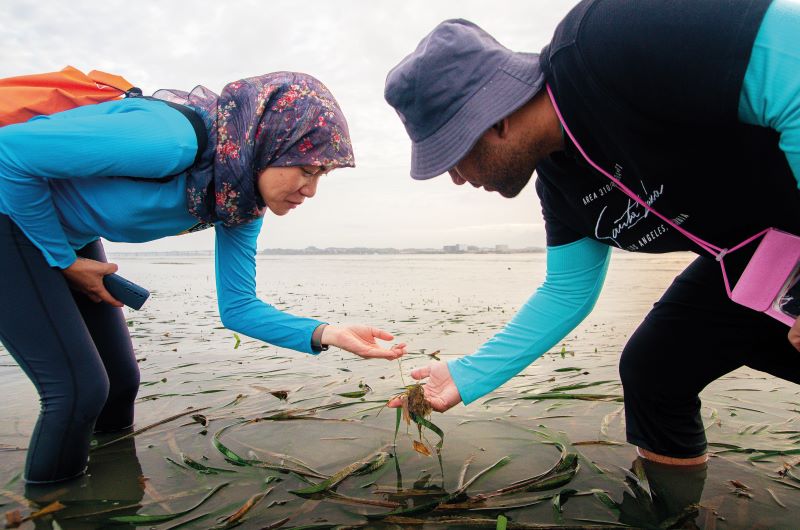
“I’m hoping this project will excite people from the performing arts and the sciences, as well as marine and conservation groups, to start asking how they can harmonise and help tell the seagrass story,” Sharmini says.
“We know we cannot change things overnight — Jill has been working on seagrass for years. But every little bit of awareness and understanding helps people think twice about doing certain things.” Or even question where their food comes from.
According to Earth.Org, seagrass meadows are declining at a rate of 7% annually. “They need all the help we can give them,” says Ooi, who has a PhD in seagrass biogeography from the University of Western Australia and lectures at Universiti Malaya’s Department of Geography.
Scientists talking in isolation about the importance of seagrass meadows — which serve as breeding, feeding and nursery grounds for marine life, protect our coasts and prevent erosion, keep waterborne pathogens in check and help improve water quality — cannot move as fast as the way they are being depleted, she adds.
“We need to build partnerships with the performing arts as well as other disciplines to tell the story of seagrass more effectively in an accessible way that makes people sit up and say, ‘We’ve got to do something!’ The performing arts are not about data or statistics. They are about immediately helping people feel something for an important phenomenon.”
Seruan is Malay for “call to action” and Setu is a species of seagrass. The performance RiB’s endeavour to spark conversation and inspire action to preserve the ecosystems for the only flowering plants that grow in marine environments.
sgos-immersive_lab-day_3-14.jpg
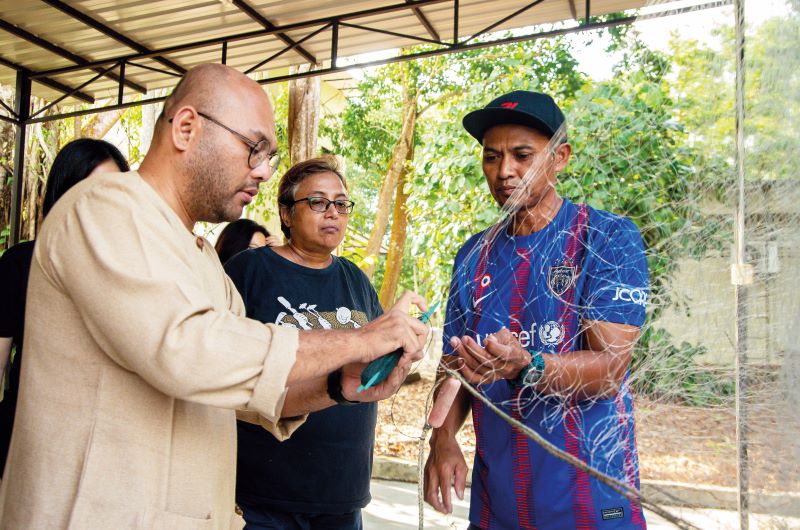
The gamelan is ideal for this narrative because people say it reminds them of water. “One ethnomusicologist describes the sound of the gamelan as being like moonlight and flowing water.”
Seagrass is critical for food supply and the villagers she works with all say that, when they were young, meadows were bountiful and finding food was not a problem. “They could walk out and catch ample fish, crabs and shellfish for their family. Now, the seagrass is unhealthy or disappearing and the people are asking, ‘Can you please help us bring them back because we’re suffering?’
“As scientists, we really need to communicate their story in a different way. This is one story that needs to be told and we are not the only ones who can do so.” A 2022 recipient of the Pew fellowship in marine conservation, Ooi has been studying seagrass around the country to find out what it needs to survive.
RiB was founded in 1997 by composer and ethnomusicologist Sunetra Fernando to pioneer and spearhead new dimensions of gamelan performance. Musicians play gongs — suspended vertically or placed on the ground — and various sets of tuned metal instruments struck with mallets.
“It’s more than convocation music. It’s an instrument you can bring all kinds of music to and merge them together. There’s no such thing as one style of play. It is constantly evolving and we want to be part of that evolution of change,” Ooi says.
img_20230224_100019.jpg
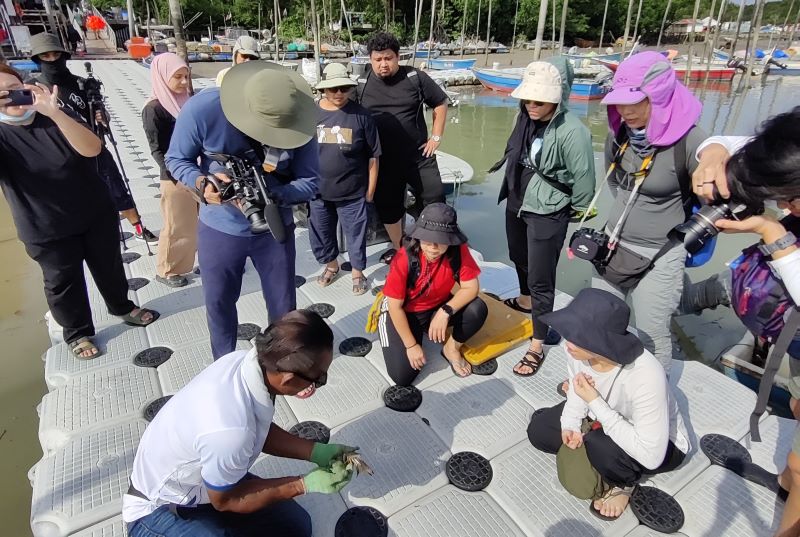
Compared to, say, the guitar, which is very approachable, the gamelan has tradition, roots and even mystical rites. “How do we bridge these instruments to modern audiences?” To answer that, RiB musicians have been telling the gamelan story from their perspective, taking out the mystique and size elements so people can understand it is not as daunting as they think.
“Yes, it takes years for us to get that technique to play, but the instruments themselves are not that imposing. They don’t feel like they’re so grand you cannot do it,” Sharmini adds.
The other thing about the gamelan is that it is played as a group. No matter how good a musician is, he cannot perform it solo.
“The gamelan is for the community; you must have friends to play with you. I like being in an ensemble because it can be lonely playing alone. Because I’m an introvert, the gamelan immediately brings me joy. It is beautiful for that. I love the community spirit it has. That’s why I’ve dropped all my other instruments,” Ooi says.
rehearsal_15july2023-3.jpg
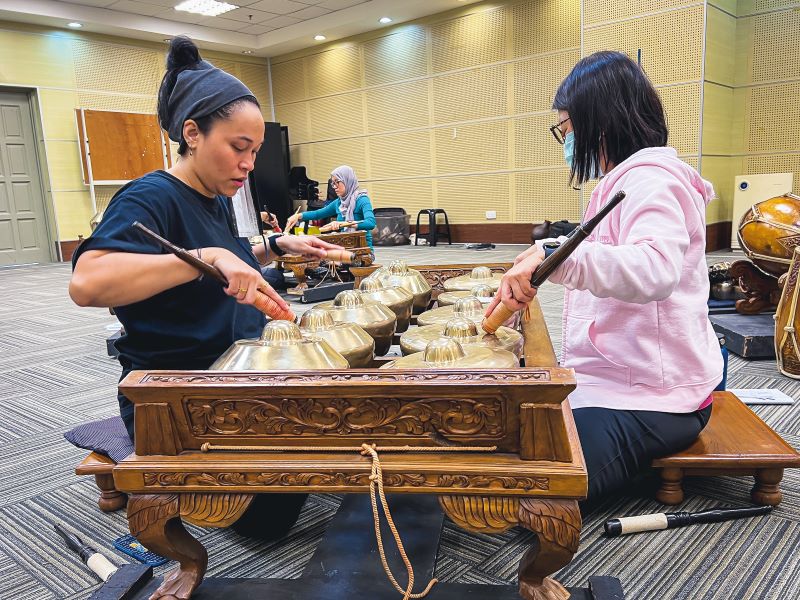
The gamelan also builds community. Sharmini has developed a team-building masterclass for co-workers who mostly know each other well. “But the things she makes them do change that whole relationship. The way they work together is different; the way they listen to each other is different.”
Ooi was drawn to the gamelan by the sound of the big gong. “I love the piano, guitar and tabla, but when you hear the gong, the vibration travels through your body. There is the frequency of the sound as well.”
Sharmini pipes in: “The gong is actually a very magical instrument. I think all of us, even myself, fell in love with the gamelan because of it.”
Seruan Setu: Secret Gardens of the Sea will be held at klpac from Aug 24 to 27. Showtime is 8.30pm nightly, with extra performances at 3pm on Saturday and Sunday. Tickets are priced at RM150 and RM80. Admission to the Aug 29 conference is free for concert-ticket holders, so hang on to the stubs. For enquiries, call (018) 227 7212.
This article first appeared on Aug 21, 2023 in The Edge Malaysia.


